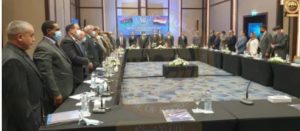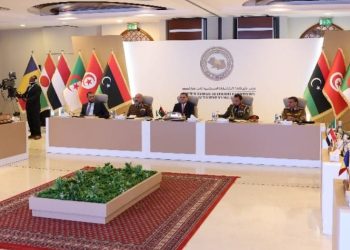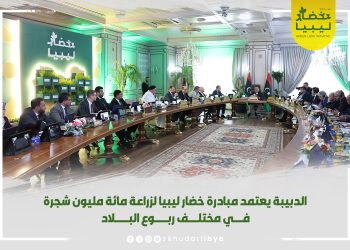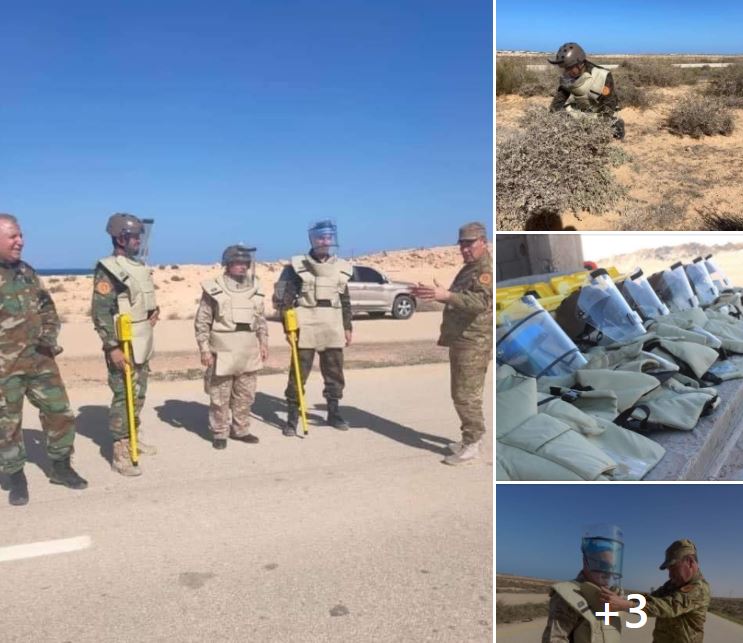By Sami Zaptia.

London, 10 February 2021:
Holding a referendum on the country’s draft constitution could delay Libya’s planned general elections beyond the stipulated date of 24 December 2021.
The revelation was made during the House of Representatives (HoR) and High State Council (HSC) Joint Constitution Committee third round of talks in Egypt’s Hurghada.
HoR Law No. 6 of 2018 stipulates that a referendum must be held on the draft constitution.
The HoR and HSC are the only entities empowered by the 2015 Skhirat Libyan Political Agreement (LPA) to jointly make amendments to Libya’s 2011 Transitional Constitutional Declaration (as amended) (TCD) – the country’s post-Qaddafi era temporary constitution.
Moreover, the Libyan Political Dialogue Forum (LPDF), made up of 84 members selected by UNSMIL to represent all of Libya, stipulated that elections must be held on 24 December.
Speaking to various press outlets, the Official Spokesman for the HoR, Abdalla Belheeg said ‘‘the (Hurghada) talks confirmed the difficulty of holding the referendum on the draft constitution in the remaining period’’.
He explained that ‘‘the referendum process requires procedures beyond the remaining period, which means that the elections may not be held on time, if it is agreed to hold a referendum first’’.
Belheeg pointed out that the High National Election Commission (HNEC) has reported that it needs up to seven months to organize the referendum on the draft constitution, adding that if the Libyan people reject the draft constitution in the referendum, procedures will be prolonged to after the planned election date – postponing the elections to beyond to a later date.
He pointed out that the Constitutional Committee and UNSMIL had not indicated their views of the possibility of delaying the 24 December elections to accommodate the referendum or as a result of the possibility of the Libyan public rejecting the draft constitution.
Belheeg pointed out that the talks will continue for three days and that a final statement will be issued after the end of the session (tomorrow).
The Hurghada talks are brokered by UNSMIL and the head of HNEC, Emad Sayeh, was present as a guest at the talks.
Analysis
Talk coming out of Hurghada of the planned 24 December elections being postponed beyond their stipulated date could start to ring alarm bells for Libyans who thought this would definitely be the last interim Libyan government.
Contested legitimacy of Libya’s governments
All of Libya’s interim governments since the overthrow of the Qaddafi regime in 2011, be it when they were unified in Tripoli or when they divided into two after the 2014 Libya Dawn Tripoli militia coup, have been weak and relatively contested in their legitimacy. The fact that they were elected under a temporary constitution (TCD) has meant they enjoyed reduced power and ability to act. That is, reduced ability to solve the myriad of problems that Libya is suffering currently.
UN Security Council frozen assets
For example, domestically, the Tripoli Central Bank Governor and the Audit Bureau have in practice refused to treat the interim governments as fully authorised to act. Internationally, the UN Security Council still imposes a freeze on Libya’s Libyan Investment Authority (LIA) assets abroad until a constitutionally based government is elected by the Libyan people.
Was 24 December 2021 a realistic election date?
The talk of postponing the December elections so early on must be worrying and raises questions. Remember it was only Friday that the LPDF meeting in Geneva selected Libya’s latest interim government: the Government of National Unity (GNU).
The LPDF stipulated that the GNU will have a very short term in office – December 2021 – and its prime aim is to organize these elections.
Equally, questions will be asked as to weather the 24 December election date was fanciful. Was it used solely as a pressure tool to get the conflicting Libyans to focus and come to quick agreement?
Process must be seen to be safe
If the international community wants the 24 December to be accepted by most Libyans as safe, legitimate elections, the process must be seen as safe. Cancelling the referendum would question the election’s legitimacy and would open it up to legal challenges.
A quorate meeting of the HoR
It could be cancelled if the HoR and HSC Committee agree and the HoR meets in quorate to legislate to cancel the referendum. However, the full HoR has failed to meet in quorate since 2014.
The draft constitution is contested by the Amazigh and Tebu
Equally, if the HoR-HSC steamroll the process by quickly agreeing to go ahead with a referendum on the contested draft constitution, the process would again be subject to very likely rejection by the courts.
It will be recalled that the current draft constitution is contested, with both the Amazigh and Tebu ethnic minorities boycotting its drafting process. The standing constitution drafting law stipulates that they must approve any draft constitution.
Need for miraculous consensus
In short, organizing the 24 December depends on much consensus and the solution of long standing problems – problems that Libyans have failed to reach a consensus on and solve since the 2011 revolution.










